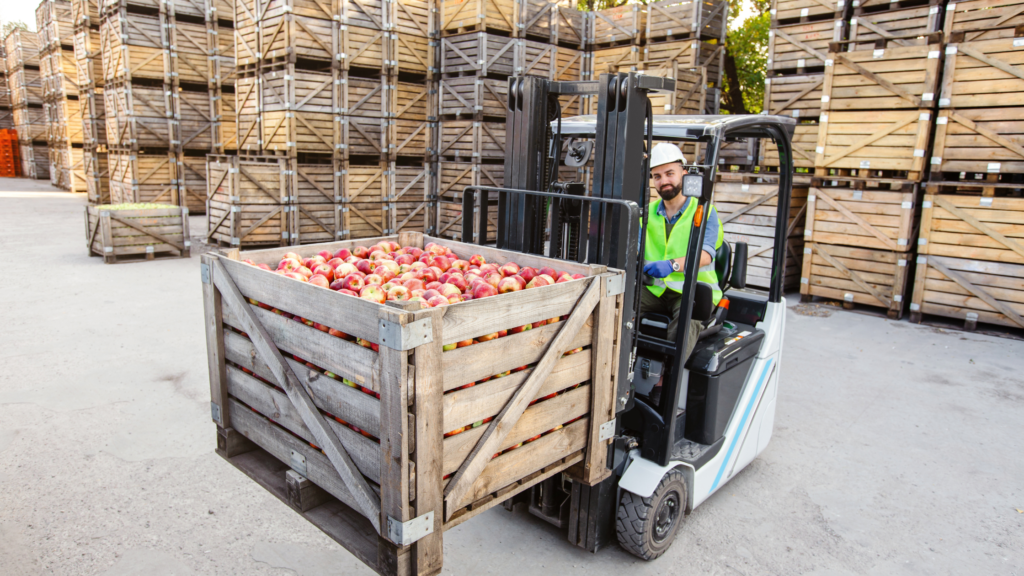Optimizing Agribusiness Supply Chain Management for Growth
Effective agribusiness supply chain management is vital for ensuring food security, optimizing costs, and promoting sustainable agriculture. As the agribusiness sector faces increasing challenges from climate change, market fluctuations, and logistical inefficiencies, optimizing the supply chain becomes critical for growth and sustainability. For organizations like Bottom Billion Corporation (BBC), enhancing supply chain management in the agribusiness sector aligns with their mission to support sustainable development and empower underserved communities. Importance of Agribusiness Supply Chain Management Managing the agribusiness supply chain involves overseeing the entire process from production to delivery, ensuring that products reach consumers efficiently. Effective supply chain management minimizes waste, reduces costs, and improves the quality of products delivered to the market. For farmers and agribusinesses, it means greater profitability and resilience against market volatility. Key Components of Agribusiness Supply Chain Management Production Planning and ForecastingAccurate forecasting and planning are essential for matching supply with demand, reducing waste, and maximizing profits. Advanced analytics and AI can help agribusinesses predict demand, manage inventory, and plan production schedules more effectively. Logistics and TransportationEfficient transportation is crucial in agribusiness due to the perishable nature of agricultural products. Implementing smart logistics solutions, such as real-time tracking and optimized routing, can reduce delays and minimize spoilage. Storage and Inventory ManagementProper storage facilities and inventory management are critical to maintaining product quality and reducing losses. Innovations like temperature-controlled storage and automated inventory systems can enhance efficiency and product longevity. Sustainability in the Supply ChainSustainability is increasingly becoming a priority in agribusiness supply chains. Adopting sustainable practices, such as reducing carbon emissions, using eco-friendly packaging, and minimizing food waste, is essential for long-term viability and market competitiveness. Challenges in Agribusiness Supply Chain Management Climate Change and Environmental ImpactClimate change poses significant risks to agricultural production, affecting the entire supply chain. Managing these risks requires adaptive strategies, such as diversifying supply sources and investing in climate-resilient crops. Market Volatility and Price FluctuationsAgribusinesses are often vulnerable to market volatility and price fluctuations. Effective supply chain management can help mitigate these risks by diversifying markets, securing long-term contracts, and using hedging strategies. Technological BarriersWhile technology offers significant benefits, access to advanced tools and systems can be a barrier for smaller agribusinesses. Investing in scalable solutions and providing training for workers can help overcome these challenges. Strategies for Effective Supply Chain Management Leveraging TechnologyTechnologies like IoT, blockchain, and AI are transforming agribusiness supply chains by enhancing transparency, traceability, and efficiency. Implementing these technologies can lead to better decision-making and reduced operational costs. Collaboration and PartnershipsCollaborating with stakeholders across the supply chain, including suppliers, distributors, and retailers, can enhance efficiency and reduce costs. Strategic partnerships can also provide access to new markets and resources. Adopting Sustainable PracticesSustainability should be integrated into every aspect of the supply chain, from production to distribution. This includes using renewable energy, reducing waste, and supporting fair trade practices. Capacity Building and TrainingInvesting in capacity building and training for workers involved in the supply chain is essential for maintaining high standards and adapting to new technologies. Continuous education and skill development are key to long-term success. Examples of Successful Supply Chain Management Unilever’s Sustainable Agriculture InitiativeUnilever has implemented a sustainable sourcing strategy that ensures traceability and transparency throughout its supply chain. By partnering with smallholder farmers and investing in sustainable practices, Unilever has improved both profitability and social impact. Nestlé’s Farm-to-Market StrategyNestlé’s farm-to-market strategy focuses on building a resilient supply chain by working directly with farmers to improve agricultural practices, ensure quality, and reduce environmental impact. This strategy has helped Nestlé secure a reliable supply of high-quality raw materials. Olam International’s Integrated Supply ChainOlam International has developed an integrated supply chain that leverages technology and data to optimize every stage of the process. By using real-time data and analytics, Olam has improved efficiency, reduced costs, and minimized environmental impact. Optimizing agribusiness supply chain management is essential for improving efficiency, reducing costs, and ensuring sustainability. By leveraging technology, fostering collaboration, and adopting sustainable practices, agribusinesses can build resilient supply chains that drive growth and support the broader goals of sustainable development. For organizations like Bottom Billion Corporation, supporting advancements in agribusiness supply chain management aligns with their mission to promote economic empowerment and environmental stewardship. As the sector continues to evolve, effective supply chain management will play a pivotal role in the success of agribusinesses worldwide.
Optimizing Agribusiness Supply Chain Management for Growth Read More »


